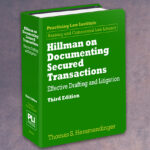
Navigating Fashion Trademark Infringement In Online Marketplaces

(Photo by Smith Collection/Gado/Getty Images)
The Ninth Circuit has for the first time ruled in a case that will change how the courts here view the conduct of online marketplaces who facilitate in sales of goods that infringe the trademarks of others. Y.Y.G.M. SA d.b.a. Brandy Melville v. Redbubble, Inc., No. 21-56236 (9th Cir. 2023).
googletag.cmd.push( function() { // Display ad. googletag.display( "div-id-for-top-300x250" ); });Why is this so important? The business model for online marketplaces such as Redbubble, Teespring, and Zazzle relies on being the go-to for many smaller and emerging brands. These marketplaces can also be the “wild west” for copycat opportunists riding on the coattails of fashion brands big and small. Often, these infringers exploit the copyrighted and trademarked works of successful brands. The law has long been developing with respect to when, and whether, the online marketplaces themselves can be legally charged with holding the bag (in handbag cases, sometimes rather literally). When the sellers they “host” and benefit from are infringers, do these platforms get a free ride? The federal courts have frequently considered this issue in the copyright context. The Ninth Circuit held that knowledge of specific infringers or instances of infringement is required for an online marketplace to be liable for contributory copyright infringement. For example in Luvdarts, LLC v. AT&T Mobility, LLC, 710 F.3d 1068 (9th Cir. 2013), the Ninth Circuit concluded that despite receiving notices that were “150-page-long lists of titles” that the plaintiff had copyrighted, the defendant lacked specific knowledge as these notices failed to “identify which of these titles were infringed, who infringed them, or when the infringement occurred.” Id. at 1072-73. The Ninth Circuit continued to explain that while “[w]illful blindness of specific facts would establish knowledge for contributory liability,” the plaintiff’s allegation of “indifferen[ce] to the risk of copyright infringement” was legally insufficient. Id. at 1073.
 Sponsored Survey Results: A Perspective On The Private Markets Ontra surveyed over 400 private markets professionals about what to expect this year and their legal process pain points. From Kerry G. Benn, Ontra
Sponsored Survey Results: A Perspective On The Private Markets Ontra surveyed over 400 private markets professionals about what to expect this year and their legal process pain points. From Kerry G. Benn, Ontra These marketplaces are “third parties.” They are not the “direct” infringers. They do not design the infringing items sold on their sites. They do not affix the infringing brand names and logos to the merchandise sold on their sites. But by facilitating the infringers’ sales, they are often accused in litigation of being “contributory infringers.” In other words, they are accused by rights-holders of having a more than passive role in the infringement process. Some courts handle the copyright and trademark infringing issues in a similar way. But these issues have not arisen as frequently with the trademark properties exploited by infringers on Redbubble and other online marketers. That brings us to the Redbubble cases in our discussion today.
While the majority of online marketplaces simply provide a platform for users to sell their goods, Redbubble goes a step further by assisting its users with marketing the goods and placing its own tag on the goods sold on its website. With its heightened involvement, Redbubble has been a target for numerous trademark suits in addition to the suit initiated by Brandy Melville. For example, Ohio State University (OSU) and Atari filed separate suits alleging that Redbubble was liable for trademark infringement for selling merchandise that incorporated its respective marks. OSU won and Atari lost.
googletag.cmd.push( function() { // Display ad. googletag.display( "div-id-for-middle-300x250" ); }); googletag.cmd.push( function() { // Display ad. googletag.display( "div-id-for-storycontent-440x100" ); }); googletag.cmd.push( function() { // Display ad. googletag.display( "div-id-for-in-story-youtube-1x1" ); });In deciding the case brought by OSU, the Sixth Circuit reversed the district court’s grant of summary judgment in favor of Redbubble and remanded the issue to be considered by the district court. The Sixth Circuit reasoned that there is an important distinction between a seller who “uses” a trademark and a “passive facilitator” of sales – Redbubble is more than just a “passive facilitator” as it “brings trademark-infringing products into being by working with third-party sellers to create new Redbubble products, not to sell the artists’ products.”
Contrary to the Sixth Circuit’s opinion, the jury in the U.S. District Court of the Northern District of California held in favor of Redbubble and against Atari, finding Redbubble was not liable for direct infringement nor had sufficient knowledge or control of what users were selling on its platform to be liable for contributory infringement.
Sponsored Sponsored Survey Results: A Perspective On The Private Markets Ontra surveyed over 400 private markets professionals about what to expect this year and their legal process pain points. From Kerry G. Benn, Ontra
Sponsored Survey Results: A Perspective On The Private Markets Ontra surveyed over 400 private markets professionals about what to expect this year and their legal process pain points. From Kerry G. Benn, Ontra  Sponsored Is Biglaw Asleep At The Cybersecurity Wheel? Help us benchmark the industry — and get a chance at a $250 gift card! From Above the Law
Sponsored Is Biglaw Asleep At The Cybersecurity Wheel? Help us benchmark the industry — and get a chance at a $250 gift card! From Above the Law  Sponsored The Digital Transformation Imperative
Sponsored The Digital Transformation Imperative  Sponsored Documenting Secured Transactions: A New Guide For Practitioners A newly updated PLI treatise provides both the legal framework and practical guidance on documenting secured transactions, including important details about 2022 amendments to the UCC. From Practising Law Institute
Sponsored Documenting Secured Transactions: A New Guide For Practitioners A newly updated PLI treatise provides both the legal framework and practical guidance on documenting secured transactions, including important details about 2022 amendments to the UCC. From Practising Law Institute The Ninth Circuit addressed Brandy Melville’s case against Redbubble this July. Discussing contributory trademark infringement for the first time, the Ninth Circuit found that online marketplaces such as Redbubble are only liable for trademark infringing user products when they have specific knowledge of the infringement.
In its initial complaint, filed in 2019, Y.Y.G.M. dba Brandy Melville alleged that Redbubble infringed on several of its trademarks, including the registered Brandy Melville Heart Mark and LA Lightning Mark, by allowing its users to upload these marks for printing onto apparel and various other products with Redbubble’s tag. The case went to trial in June 2021 and the jury found in favor of Brandy Melville’s company, awarding the brand $520,000 in damages. As the Ninth Circuit summarized, “[t]he jury found Redbubble liable for (1) willful contributory counterfeiting of the Heart Mark and Lighting Mark, (2) contributory infringement of those two marks, and (3) contributory infringement of unregistered trademarks that were “Brandy Melville” variations.” After the jury’s verdict, the district court granted Redbubble’s motion for judgment as a matter of law (JMOL) on the contributory counterfeiting claim for the Heart Mark because Brandy Melville failed to show that any product bearing the Heart Mark from Redbubble’s website was similar to legitimate Brandy Melville products. The district court let the verdict stand for the remaining claims, and it denied Brandy Melville a permanent injunction, attorney fees, and prejudgment interest.
Redbubble appealed the denial of JMOL, arguing that the district court applied the wrong standard for contributory liability under the Lanham Act. The Lanham Act provides a civil cause of action where one “intentionally induces another to infringe a trademark” or who “continues to supply its product to one whom it knows or has reason to know is engaging in trademark infringement.” Redbubble’s appeal concerns the latter form of contributory infringement. The Ninth Circuit has previously recognized that a party meets the “knows or has reason to know” standard if it is willfully blind to infringement. The Ninth Circuit also has held that willful blindness requires (1) “subjective[ ] belie[f] that infringement was likely occurring” and (2) “deliberate actions to avoid learning about the infringement.”
googletag.cmd.push( function() { // Display ad. googletag.display( "div-id-for-bottom-300x250" ); });In considering Redbubble’s appeal, the Ninth Circuit took on the novel issue of whether willful blindness requires knowledge of specific infringers or instances of infringement. While Redbubble argued specific knowledge is required, Brandy Melville argued that a party has a duty to take reasonable corrective action once a party obtains general knowledge of infringement. The Ninth Circuit ultimately found that it is necessary to prove up willful blindness by showing the defendant had specific knowledge of infringers or instances of infringement. Such a rule aligns with findings from the Second, Fourth, and Tenth Circuits as well as the standard for contributory copyright infringement in the Ninth Circuit, as discussed above.
It is important to understand that the Ninth Circuit held that platforms such as Redbubble do not have a duty to look for infringement until they gain the specific knowledge necessary to trigger liability. The Ninth Circuit instructed defendants that once they have specific knowledge, “bona fide efforts to root out infringement” could “support a verdict finding no liability, even if the defendant was not fully successful in stopping infringement.”
Sponsored Sponsored LawPay Pro Offers Upgraded Time And Billing Essentials AffiniPay’s latest product for the legal community, introduced earlier this year, presents a simple web-based solution for attorneys seeking seamless firm cash flow. From Above the Law
Sponsored LawPay Pro Offers Upgraded Time And Billing Essentials AffiniPay’s latest product for the legal community, introduced earlier this year, presents a simple web-based solution for attorneys seeking seamless firm cash flow. From Above the Law  Sponsored Documenting Secured Transactions: A New Guide For Practitioners A newly updated PLI treatise provides both the legal framework and practical guidance on documenting secured transactions, including important details about 2022 amendments to the UCC. From Practising Law Institute
Sponsored Documenting Secured Transactions: A New Guide For Practitioners A newly updated PLI treatise provides both the legal framework and practical guidance on documenting secured transactions, including important details about 2022 amendments to the UCC. From Practising Law Institute The Ninth Circuit remanded Redbubble’s JMOL for reconsideration by the district court with that legal standard in mind. It is up to the district court to determine whether Redbubble had specific knowledge of infringement, and if it did, whether it took bona fide efforts. What constitutes bona fide efforts varies based on the context.
Turning to Brandy Melville’s appeal of the district court’s granting of Redbubble’s JMOL on its Heart Mark counterfeiting claims, the Ninth Circuit considered whether the district court evaluated the evidence of likelihood of confusion under the proper standard. Trademark counterfeiting is trademark infringement, but on steroids. Unlike the regular trademark infringement test, counterfeiting requires an exploitative level of passing off. Brandy Melville argued that a plaintiff only needs to show that Redbubble used the Heart Mark on goods of the type for which the Heart Mark is registered, rather than on goods comparable to Brandy Melville products being sold. Redbubble defended the district court’s position that counterfeiting requires comparison of the whole product, not just the marks.
The Lanham Act defines a counterfeit as a “spurious mark which is identical with, or substantially indistinguishable from, a registered mark.” However, the Ninth Circuit essentially turned the counterfeit test into a regular infringement test, holding that “[t]he key inquiry is whether there is a likelihood of confusion, not whether the products are seemingly identical” because counterfeit goods do not need to be exact replicas of existing merchandise. As such, the Ninth Circuit found that the district court erred in considering whether products are “stitch-for-stitch” copies. The Ninth Circuit noted that the correct inquiry is “whether, based on the record, confusion could have resulted because the products on Redbubble’s website bearing the Heart Mark are the kinds of trademarked goods Brandy Melville sells.” Moreover, the Ninth Circuit found that the district court erred by “glossing over whether the Heart Mark was so strong and distinctive that its presence alone causes confusion.”
In light of its belief that the evidence Brandy Melville produced at trial could support a jury finding of likelihood of confusion, the Ninth Circuit remanded this issue to be reviewed by the district court under this legal standard. This possible interpretive blending of “regular” likelihood of infringement with the far more draconian counterfeiting type of infringement has caused some trademark practitioners concern. Why? Because, in part, counterfeiting (unlike “regular” trademark infringement) provides for statutory damages, in the amount of between $1,000 and $200,000 per counterfeit mark, or for a willful violation, up to $2,000,000 per counterfeit mark.
In a landmark counterfeiting case decided by the Second Circuit, Tiffany & Co. sued Costco for selling engagement rings incorporating a six-prong diamond setting resembling the style referred to as “Tiffany settings.” Tiffany and Co. v. Costco Wholesale, 971 F.3d 74, 81 (2d Cir. 2020). The district court granted Tiffany’s motion for summary judgment as to trademark infringement and counterfeiting and the jury awarded Tiffany a total of approximately $21 million. Id. The Second Circuit reversed, finding that “it was inappropriate to hold Costco liable for trademark infringement at the summary judgment stage—and because counterfeiting is merely an aggravated form of infringement—we vacate the district court’s judgment as to counterfeiting as well.” Id. at 95. The Second Circuit explained that liability for counterfeiting is likely inappropriate where a defendant “used a term identical to the registered mark otherwise than as a mark.” Id. at 95 n.18. The Second Circuit further noted that in order for material to qualify as a counterfeit under the Lanham Act it must be a “spurious mark”: one that is “fake” and “deceptively suggest an erroneous origin.” Id. In this case, the Second Circuit “fail[ed] to see how a term can be a ‘fake’ mark if it is not actually used as a mark, or how a term can ‘deceptively suggest an erroneous origin’ if it is not used as a means to indicate origin in the first place.” Id.
The Ninth Circuit also vacated the district court’s denial of Brandy Melville’s motion to “permanently enjoin Redbubble from referencing, mentioning, and using BRANDY MELVILLE, Brandy Melville’s registered trademarks, and Brandy Melville’s unregistered variations.” Under the Trademark Modernization Act, amending the Lanham Act, trademark holders are again entitled to “a rebuttable presumption of irreparable harm” upon a finding of infringement. 15 U.S.C. § 1116.
In an important analysis of the circumstances of when and whether a presumption of irreparable harm is rebutted, the district court found that Brandy Melville’s one year delay between sending a cease-and-desist letter to Redbubble and filing suit rebutted the statutory presumption of irreparable harm and the evidence presented by Brandy Melville was not sufficient to establish irreparable harm. Although noting that the movant’s delay is a relevant factor to consider in evaluating irreparable injury, the Ninth Circuit held that the district court abused its discretion in determining that the delay wholly rebutted the statutory presumption. For example, the Ninth Circuit noted that the district court did not explain how the one year delay indicates that no future harms would result.
The Ninth Circuit remanded this issue for the district court to reconsider how the existence of future harm affects irreparable harm and the other factors governing injunctive relief.
The Redbubble cases light a path for fashion brands and their counsel, guiding them toward ways to allege liability when online marketplaces offer third-party trademark infringing merchandise. A close read of this case can help brands navigate the complex landscape of trademark infringement liability in the digital age. Of course, by emphasizing that online marketplaces must obtain specific knowledge and play active roles in facilitating sales in order to be held liable for contributory infringement, these cases are instructive in steps that might be taken by online market platforms to honor proprietary rights and avoid liability of their own.
 Nicolette Shamsian joined Above the Law as a fashion law columnist in 2023. Nicolette earned her B.A., summa cum laude, in Political Science and minor in Entrepreneurship from the University of California, Los Angeles and her Juris Doctor from UCLA School of Law. Nicolette is currently an associate in the Litigation group at Irell & Manella. Nicolette’s work at Irell focuses on intellectual property litigation. As Irell’s resident fashion law aficionado, Nicolette enjoys leading discussions to keep attorneys in the firm up to date on noteworthy fashion law cases.
Nicolette Shamsian joined Above the Law as a fashion law columnist in 2023. Nicolette earned her B.A., summa cum laude, in Political Science and minor in Entrepreneurship from the University of California, Los Angeles and her Juris Doctor from UCLA School of Law. Nicolette is currently an associate in the Litigation group at Irell & Manella. Nicolette’s work at Irell focuses on intellectual property litigation. As Irell’s resident fashion law aficionado, Nicolette enjoys leading discussions to keep attorneys in the firm up to date on noteworthy fashion law cases.
ATL Fashion, Copyright, Fashion, Infringement, Intellectual Property, Irell & Manella, Nicolette Shamsian, Trademark
Introducing Jobbguru: Your Gateway to Career Success
The ultimate job platform is designed to connect job seekers with their dream career opportunities. Whether you're a recent graduate, a seasoned professional, or someone seeking a career change, Jobbguru provides you with the tools and resources to navigate the job market with ease.
Take the next step in your career with Jobbguru:
Don't let the perfect job opportunity pass you by. Join Jobbguru today and unlock a world of career possibilities. Start your journey towards professional success and discover your dream job with Jobbguru.
Originally posted on: https://abovethelaw.com/2023/08/navigating-fashion-trademark-infringement-in-online-marketplaces/